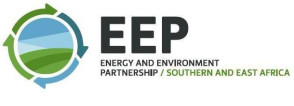Increasing access to energy efficient technologies
 Project financed by the Ministry for Foreign Affairs of Finland, the Austrian Development Cooperation and the UK Department for International Development (DFID)
Project financed by the Ministry for Foreign Affairs of Finland, the Austrian Development Cooperation and the UK Department for International Development (DFID)
Setting the scene
Kenya has a population of 41 million, with 78% living in rural areas and an annual growth rate of 2.5%. 82% of the total energy used nationally is derived from biomass with low grade biomass and agricultural residue used for cooking putting increasing pressure on natural resources. Three stone open fires and traditional stove use is widespread and the major source of Household Air Pollution (HAP) causing respiratory disease and eye damage. World Vision with funding support from the Energy and Environment Partnership (EEP) Southern and Eastern Africa will implement a project that seeks to increase access to energy efficient technologies for the rural poor in Kenya in a sustainable and economically affordable manner to tackle this problem.
Project overview
This project aims to initially distribute 5,000 fuel-efficient stoves to rural households, to reduce inefficient consumption of wood, to limit environmental degradation, and to reduce health problems associated with present practices.
The project will also pilot the establishment of a revolving credit facility. The credit facility will purchase the cookstoves and provide them to the cooperatives. The cooperatives will then pay back the credit facility as cooperative members pay off their stove. Funds returned to the credit facility will then be used to purchase more cookstoves enabling scale-up of the project.
The project is being implemented in partnership with co2balance who are the Co-ordinating / Managing Entity of the Gold Standard (GS) Micro-Energy program of activities (PoA).
Project Location
The pilot project will be implemented in the villages of Mogotio and Wema in the districts of Koibatek and Subukia of the Rift Valley Province. These villages are part of a World Vision Kenya Area Development Program.
Key benefits of the project include:
- Distribute 5,000 fuel-efficient stoves to rural Kenyan households.
- Climate change mitigation through the reduction of up to 15,000 tonnes of CO2e per year.
- Reduction in fuel wood collection time for women and children.
- Improved health, education, personal safety and environmental benefits for the communities in which the project operates.
- Establishment of a revolving credit facility that will enable scale-up of the project.


Target population: 5000 Households
Project partners:
- 30 village cooperatives
- World Vision Australia
- World Vision Kenya
- co2balance
- Energy and Environment Partnership
Social impact:
- Health improvement
- Environmental improvement
- Socio-economic improvement
- Empowerment for women
Climate change mitigation:
- Up to 15,000 tonnes of CO2 per year
